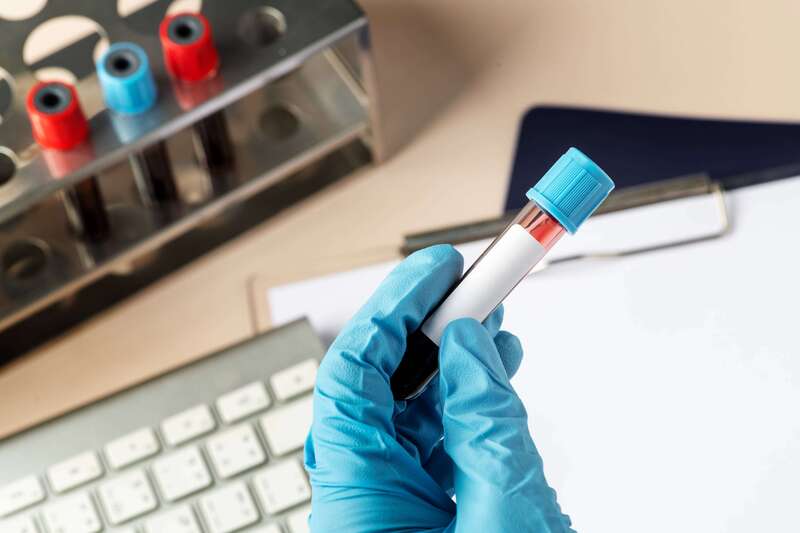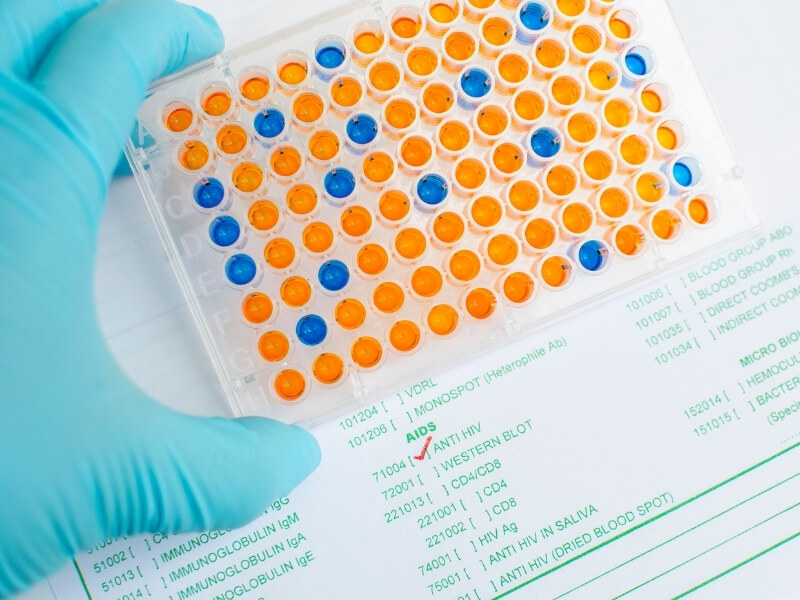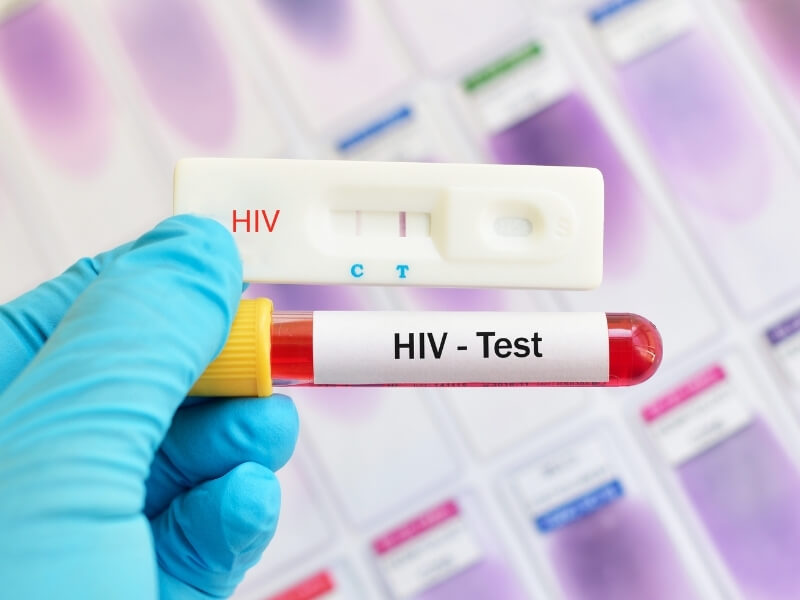Anonymous HIV Test
How We
Can Help
Anteh Dispensary Pte Ltd is an approved clinic, licensed by the Ministry of Health Singapore to carry out Anonymous HIV testing. We use both the 3rd and 4th generation test strip to detect HIV. The test itself is safe, accurate and convenient.
No names, identification or registration is required for the test. Simply walk-in and let our friendly staff know that you are here for the test.


What is Anonymous HIV Screening?
Anonymous HIV screening in Singapore prioritizes your privacy throughout the testing process. Your identity will be kept confidential, and you won’t need to disclose your name, address, or national identification number when getting tested. This ensures that you can receive necessary healthcare without compromising your privacy.
With this service, you can undergo an HIV test without sharing your personal details, helping to minimize concerns about stigma and fear related to testing. As a result, this approach strives to boost the number of individuals willing to get tested for HIV.
Our Testing Process
Our process for HIV screening is designed to be straightforward and easy to navigate. When you arrive, we provide you with an exclusive code to safeguard your anonymity. Subsequently, a pre-test counselling session takes place where we talk about your sexual health risks and address any questions you might have.
Once this is completed, we move on to the HIV testing phase. This step known as rapid HIV test in Singapore is administered through a simple finger-prick blood sample.
Following a short waiting period of around 20 minutes, your results become available. In the event of a positive outcome, we offer post-test counselling to assist you in understanding the necessary steps ahead.
Our priority is to ensure your privacy, offer clear and manageable steps, and provide support throughout the entire process.
Schedule, Recommended Test, and Time Since Exposure for HIV Testing
| Time from Exposure | Recommended Test | Schedule for HIV Screening |
| 0-14 days | Not applicable, too early to test | Not applicable, too early to test |
| 14-28 days | HIV RNA Test (4th Gen) | Repeat test after 90 days |
| 28-90 days | HIV Combo Test (4th Gen) | Repeat test after 90 days |
| >90 days | HIV Antibody Test (3rd Gen) | Final confirmation |
Functionality of HIV Tests
HIV tests operate by identifying either the virus itself (RNA or p24 antigen) or the antibodies that your immune system generates as a response to the infection.
The 4th Generation HIV tests, commonly used in rapid HIV testing in Singapore, have the capability to identify both the virus and antibodies. This dual-detection feature makes them a particularly efficient approach for the early diagnosis of HIV infections.
Understanding the Window Period in HIV Testing
The term “window period” denotes the time span between the actual HIV infection and the point at which it can be reliably detected through testing. In the case of a 4th Generation HIV test, this period generally falls within 14-28 days. For a 3rd Generation HIV test, it typically extends from 28-90 days. It’s important to note that testing conducted before the conclusion of the window period might yield false negative outcomes.

What is HIV? How does it affect?
HUMAN IMMUNODEFICIENCY VIRUS (HIV) is a virus that attacks and destroy the the human body’s immune system. This damage to the immune system makes it harder for the body to fight off infections and overtime, the infected body will lose the ability to fight off infections causing other serious illnesses such as cancer.Infection is often spread through contaminated blood, semen, vaginal fluids and from infected people.
Signs and Symptoms
It’s crucial to understand that numerous individuals with HIV may not exhibit signs and symptoms for several years.
- Early Signs: Many people may not show signs for an extended period. Initial symptoms can resemble flu, including fever, sore throat, and fatigue.
- Progression: With the progression of HIV, symptoms may intensify. This could involve significant weight loss, recurrent fevers, and more frequent infections.
- Testing is Key: It’s important to emphasize that the only definitive method to determine if you have HIV is through testing.
Types of HIV Tests
Three primary categories of HIV tests are available:
- Antibody Tests: These tests identify the presence of HIV antibodies in your blood or oral fluid.
- Antigen/Antibody Tests: This type of test detects both HIV antibodies and the HIV p24 antigen.
- Nucleic Acid Tests (NATs): Also known as HIV RNA tests, these examinations directly detect the virus itself in the bloodstream.
How Do the HIV Tests Work?
HIV Test Kits are designed to detect the presence of the human immunodeficiency virus (HIV) in your body. These tests usually look for antibodies, antigens, or the genetic material of the virus. During the testing procedure, a healthcare professional at an HIV clinic will collect a small sample of your blood, saliva, or urine. The process is quick and straightforward. Results from most tests are available within a few days, and some rapid tests can deliver results in about 20 minutes.

What is Rapid HIV Test?
Rapid HIV tests yield faster results, often in a matter of minutes. They operate by detecting the antibodies that your body generates to fight against HIV. In the presence of these antibodies, the test indicates a positive outcome.
Although rapid tests are effective, they are commonly employed for initial screening rather than diagnostic confirmation. To validate a positive result, a more conclusive HIV test would be required.
HIV Testing in Singapore – Importance of Disclosure
In Singapore, HIV testing is conducted with utmost privacy and is strongly emphasized. Knowing your HIV status is significant, not only for your personal well-being but also for the safety of those in your community. Disclosing your HIV status to your healthcare provider is a responsible and courageous step, enabling you to access the best possible care and support. This demonstrates concern not only for yourself but also for the well-being of others, contributing to a safer and more informed community. To find a suitable HIV test clinic in Singapore, you can consult healthcare professionals or search for accredited facilities.
Ways to prevent getting HIV.
- Use Condom for sexual activity
- Consider Pre-exposure prophylaxis (or PrEP) medicine
- Be faithful and abstain from casual sex
- Get Tested
Get yourself tested if you..
- Have multiple sexual partners
- Have not been using condoms consistently
- Are unsure of your partner’s sexual history
- Had a tattoo or piercing with an unlicensed provider
- Had an operation or blood transfusion overseas, where blood testing regulatory requirement may not be stringent
Frequently Asked Questions
It is recommended to undergo testing if you have engaged in unprotected sex, shared needles, or have any other risk factors. Typically, it is advisable to wait three to 12 weeks after a potential exposure before getting an HIV test for accurate results.
HIV is a virus that targets the immune system, and AIDS, which stands for acquired immunodeficiency syndrome, represents the most advanced stage of HIV infection. However, not everyone with HIV progresses to AIDS, especially with the availability of modern and effective treatments.
No, casual touches such as hugging, kissing, or sharing meals or drinks do not transmit HIV. The virus is primarily transmitted through specific body fluids containing a detectable viral load from an individual with HIV. These fluids include blood, semen, vaginal and rectal fluids, and breast milk.
The cost of an HIV test can vary, with some clinics providing free or low-cost testing, while others may have higher charges. For accurate information on testing costs, it is recommended to inquire with local health clinics or consult your healthcare provider.
